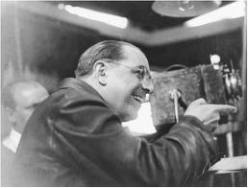By Aristippus
FA Hayek’s final work, The Fatal Conceit (1988), is in essence a lengthy argument against what its author calls ‘constructivist rationalism’. By that term he means the assumption that cultural evolution occurs not by a process of natural selection as in biological evolution, but instead as the result of deliberate design guided by human reason (p. 22). In the constructivist framework, societal, economic, and political institutions are assumed to have developed as the result of a guiding mind or minds. Such a view, Hayek argues, smacks of a fatal conceit.
Throughout the above mentioned work, Hayek demonstrates that in many areas, the constructivist assumptions are not warranted, and that the existence of various social institutions can be understood as resulting from the interplay of acting individuals without a single guiding force – that is, as a result of human action, but not of human design. He refers to such emergence as spontaneous, and this process can be particularly understood in regard to the development of languages and economies. In his discussion of the fatal conceit, Hayek recognises that a great deal of the constructivist-rationalist view on political economy owes much to the work of ancient philosophers Plato (424/423 – 348/347 BCE) and Aristotle (384 – 322 BCE):
“The unsatisfactory character of our contemporary vocabulary of political terms results from its descent largely from Plato and Aristotle who, lacking the conception of evolution, considered the order of human affairs as an arrangement of a fixed and unchanging number of men fully known to the governing authority – or, like most religions down to socialism, as the designed product of some superior mind.” (p. 109)
In this he recognises a particular strand of Platonic-Aristotelian rationalism, which was not necessarily universal in Greek thought (p. 46). It was this strand, however, that was to become the most influential one in Western philosophy from the time of the Scholastic movement in the Middle Ages. Expanding on Hayek’s work, it must be realised that this constructivist-rationalist view extends to the very root of Western philosophy in the works of Plato, and goes far deeper than questions of political economy.





 In the
In the 





